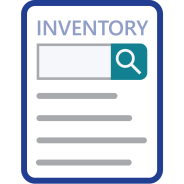
Choose from 5 options:
Records you must keep if you're introducing a chemical under the 'listed' category.
Introducers must:
An introducer is taken to know the CAS number, CAS name, IUPAC name, or eligible INCI plant extract name if it would be reasonably practicable for them to find out that number/name.
This means introducers must proactively try to find this information, including checking for it with their chemical supplier.
There are options for the types of records introducers can keep. This provides flexibility for introducers to be able to show that their introduction is authorised, whilst ensuring that AICIS has access to adequate information to accurately identify the Inventory listing for a chemical.
Record keeping requirements relate to:
There are 5 options. Introducers should try to fulfil options 1, 2, 3 or 4 (in that order) first, before resorting to option 5.
The INCI name for an industrial chemical is an eligible INCI plant extract name if:
Extracts of flowers, seeds or leaves of trees, shrubs, herbs, grasses, ferns and mosses.
Where the chemical has been intentionally:
This option only applies to introducers who were the holder of, or covered by, an assessment certificate for the introduction of a chemical, that was identified by an AACN, and where that chemical has since been listed on the Inventory.
The introducer must keep:
Introducer must keep:
As well as the above information, records if any of the following apply to the introduction:
Introducers must keep certain records about their chemical introductions to confirm they are authorised as listed introductions. This also ensures they are aware of any changes that could impact their categorisation. Introducers must keep these records for 5 years, even after they’ve stopped introducing their chemical.
All importers and manufacturers (introducers) of industrial chemicals must submit an annual declaration after the end of each registration year (31 August). The AICIS annual declaration is due by 30 November every year.